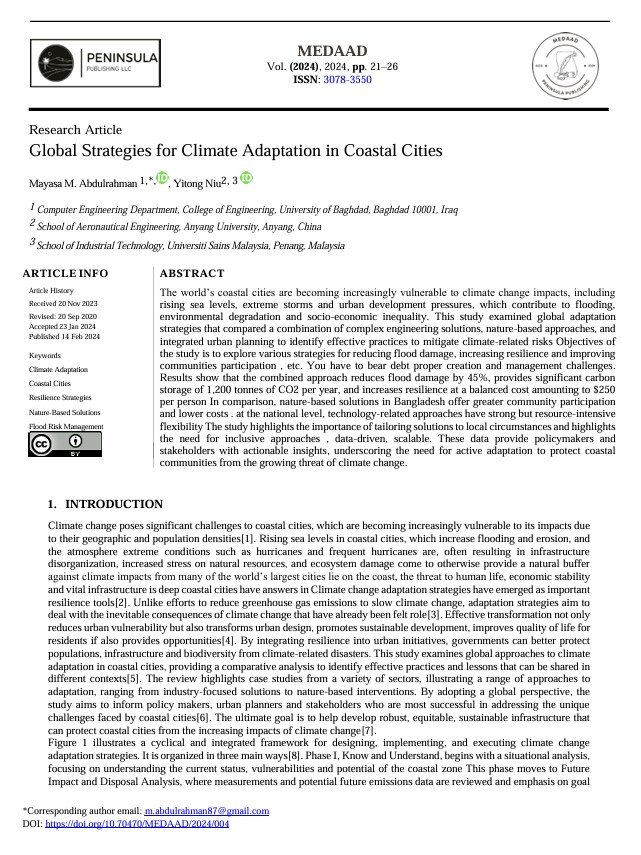Global Strategies for Climate Adaptation in Coastal Cities
Main Article Content
Abstract
The world’s coastal cities are becoming increasingly vulnerable to climate change impacts, including rising sea levels, extreme storms and urban development pressures, which contribute to flooding, environmental degradation and socio-economic inequality. This study examined global adaptation strategies that compared a combination of complex engineering solutions, nature-based approaches, and integrated urban planning to identify effective practices to mitigate climate-related risks Objectives of the study is to explore various strategies for reducing flood damage, increasing resilience and improving communities participation , etc. You have to bear debt proper creation and management challenges. Results show that the combined approach reduces flood damage by 45%, provides significant carbon storage of 1,200 tonnes of CO2 per year, and increases resilience at a balanced cost amounting to $250 per person In comparison, nature-based solutions in Bangladesh offer greater community participation and lower costs . at the national level, technology-related approaches have strong but resource-intensive flexibility The study highlights the importance of tailoring solutions to local circumstances and highlights the need for inclusive approaches , data-driven, scalable. These data provide policymakers and stakeholders with actionable insights, underscoring the need for active adaptation to protect coastal communities from the growing threat of climate change.
Article Details

This work is licensed under a Creative Commons Attribution 4.0 International License.
